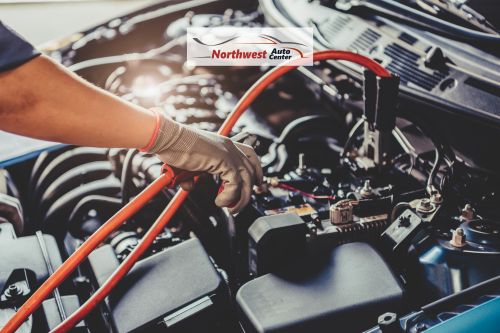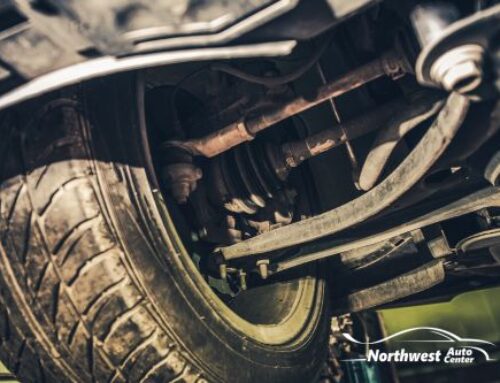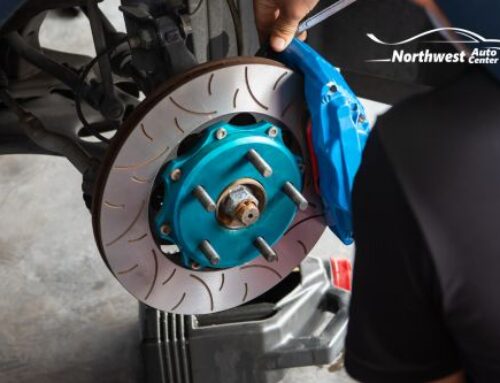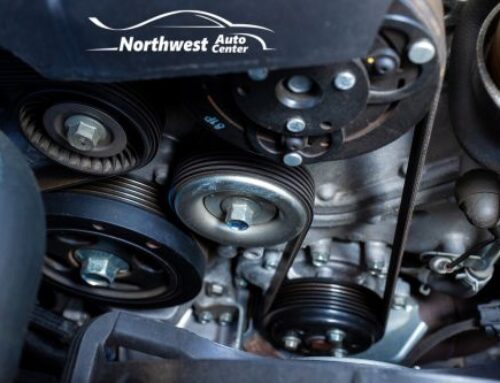Modern vehicles rely heavily on their car electrical systems to function. From powering your lights and entertainment systems to ensuring the engine starts, it’s responsible for more than you think. And like any other system in a vehicle, the car electric system can experience problems that need diagnosing and repair. Knowing how to recognize these issues and determine when to seek professional help can save you time, money, and inconvenience.

Common Car Electrical System Issues
Battery Problems
The car battery is the heart of the car’s electrical system, and any issues here can affect the vehicle’s performance. Some common symptoms of a battery problem include:
- Difficulty starting the car
- Dim headlights
- Electrical components not working or working slowly
Diagnosis: If your car struggles to start, the battery might be low on charge or reaching the end of its life. A quick way to diagnose this is by checking the battery voltage with a multi-meter. A fully charged battery should read close to 12.8 volts when the car is off. Anything below 12 volts may indicate the battery is not holding a proper charge or possibly the alternator not producing the proper amount of voltage.
Repair: If your battery is undercharged, try jump-starting the car. If this solves the problem temporarily, it may indicate that the battery needs replacement or that there are alternator issues (which we’ll cover next). Batteries typically last 3-5 years, so if yours is nearing the end of this cycle, replacement might be around the corner.
Alternator Issues
The alternator works in conjunction with the battery to power the car’s electrical systems while driving and to charge the battery. Alternator issues are a common source of electrical headaches for drivers.
Diagnosis: Symptoms of a failing alternator include flickering or dimming headlights or the battery warning light on the dashboard. To confirm an alternator issue, you should visit a professional shop and ask to have the alternator tested for proper voltage and proper amperage (an alternator can fail 2 ways; not producing the proper voltage and/or not producing the proper amperage). Either of the aforementioned indicates a failed alternator.
Repair: Alternator issues require professional repair. Replacing an alternator is an in-depth process, especially in newer vehicles where the car electrical system is more integrated with electronic control units (ECUs). If your alternator fails completely, it may need to be replaced, though sometimes the issue could be with a loose belt or connection.
Faulty Wiring
Wiring is the backbone of the car electric system, transmitting power from the battery and alternator to various components. Over time, wiring can corrode, or become damaged due to heat, friction, or rodents.
Diagnosis: If you’re experiencing intermittent issues with electrical components (like power windows working only sometimes) or if there’s a burning smell or visible signs of frayed wires, faulty wiring could be to blame. A visual inspection of the wiring harness can reveal some problems, but for deeper issues, professional diagnostic tools may be required.
Repair: Repairing faulty wiring can range from replacing a simple fuse to rewiring sections of the vehicle. It’s important to seek professional help for major wiring repairs, as improper fixes can lead to further damage or even electrical fires.
We can help! Call Northwest Auto Center of Houston today at (281) 894-8880.
Blown Fuses
Fuses are essential for protecting the car electrical system from overload. When a fuse blows, it cuts off power to specific parts of the car’s system, preventing further damage.
Diagnosis: If a certain feature in your car suddenly stops working (e.g., the radio, headlights, or power seats) while others continue to function normally, a blown fuse might be the culprit. Most vehicles have a fuse box located under the dashboard or hood (or both places), and the owner’s manual can guide you on which fuse corresponds to which component.
Repair: Fortunately, replacing a fuse is a relatively easy and inexpensive fix. Simply locate the blown fuse and replace it with a new one of the same amperage. If fuses keep blowing regularly, it may indicate a deeper issue with the car electric system that warrants a professional inspection.
Starter Motor Issues
The starter motor is responsible for cranking the engine when you turn the key or press the start button. A faulty starter can leave you stranded.
Diagnosis: If you hear a clicking sound when trying to start the car, or if the car fails to start even though the battery is fully charged, the starter motor may be malfunctioning. The diagnosis usually involves checking the starter circuit for any issues, such as a bad relay or solenoid.
Repair: Replacing the starter motor requires mechanical expertise and is best left to professionals. DIY repairs can cause more harm than good because of the starter’s location and complexity.
When to Seek Professional Help
While some minor electrical issues like changing a fuse or battery can be handled at home, many aspects of a car electrical system are complex and require professional diagnosis and repair. If you’re dealing with persistent electrical problems, such as wiring issues, alternator malfunctions, or starter motor failures, it’s advisable to consult a certified mechanic. Modern vehicles, especially those with integrated electronics and onboard computers, can be sensitive to improper repairs, potentially leading to more costly damage.
Additionally, advanced diagnostic tools are often necessary to identify the root cause of certain electrical problems. Professionals can access vehicle-specific diagnostic codes and use specialized equipment to pinpoint issues within the car electric system accurately.
Preventive Maintenance for Car Electrical Systems
To minimize the risk of electrical problems, regular maintenance is crucial. Some preventive measures include:
- Checking and cleaning battery terminals regularly to prevent corrosion (which should be inspected whenever you have an oil service)
- Inspecting the alternator belt for wear and ensuring proper tension.
- Getting a professional inspection if your vehicle’s electrical system acts irregularly.
A well-maintained car electrical system ensures a smooth and reliable driving experience. From faulty wiring to alternator issues, diagnosing and repairing electrical problems is key to keeping your vehicle in top condition.
In need of a repair or inspection in the Houston Area? Call Northwest Auto Center of Houston today at (281) 894-8880. We are here to help!






Leave A Comment
You must be logged in to post a comment.